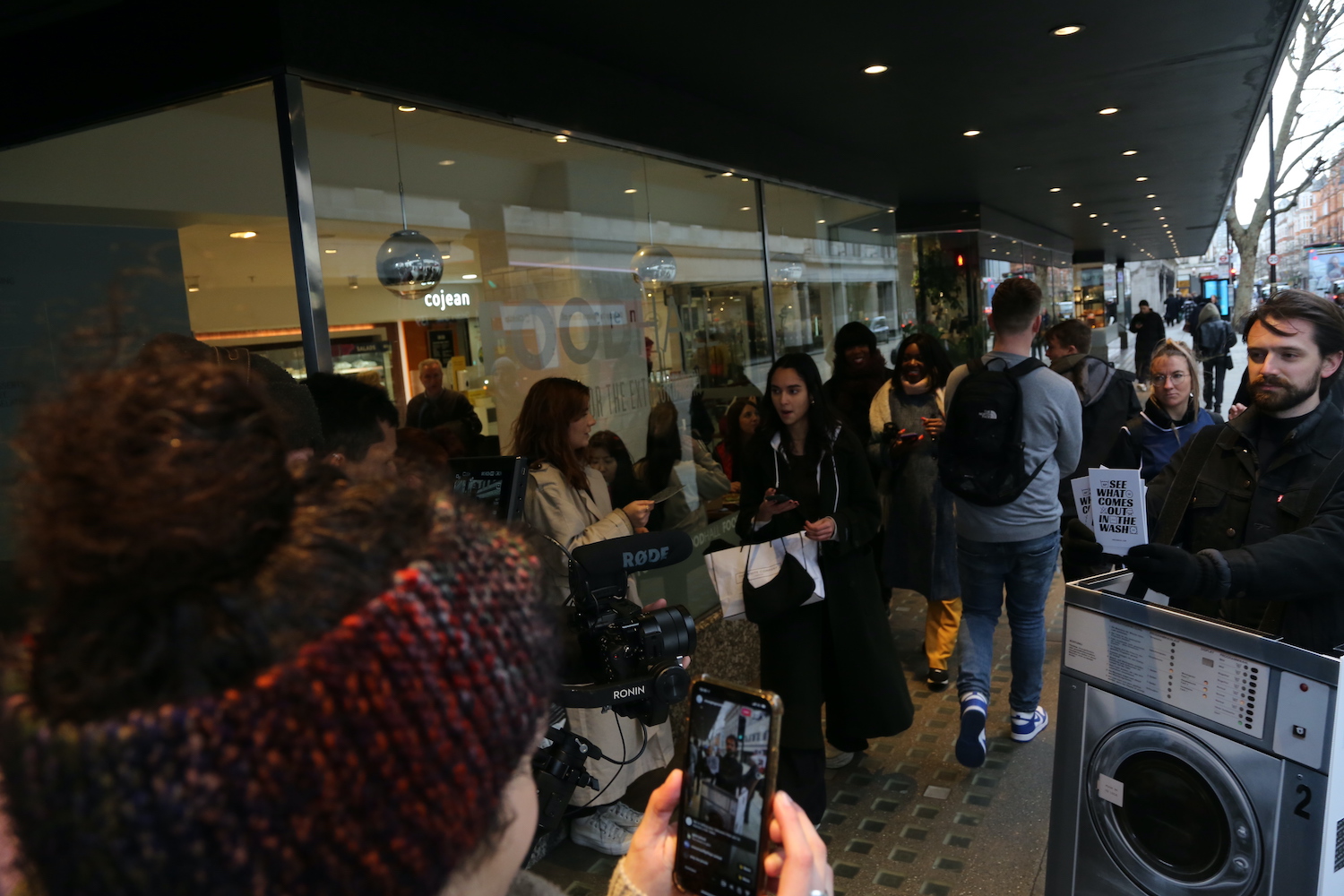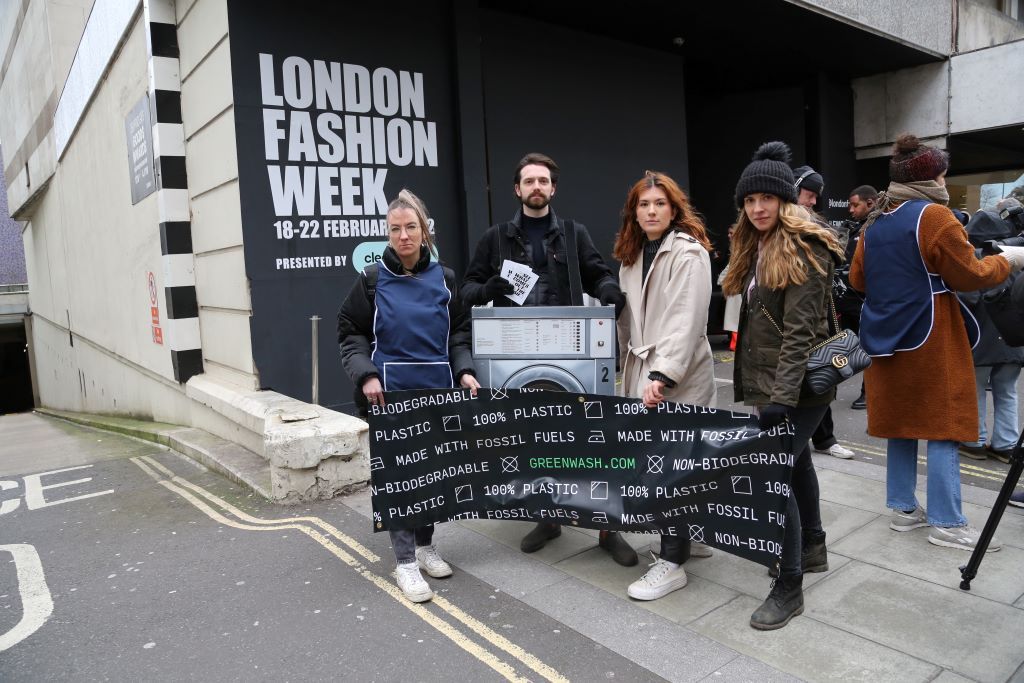London
Changing Markets Foundation launches greenwash.com.
Changing Markets Foundation has launched Greenwash.com to expose ‘rife’ greenwashing in the fashion industry as London Fashion Week draws to a close. Protesters from Changing Markets and Extinction Rebellion gathered outside The Old Selfridges Hotel to shine a light on greenwashing by fashion brands with banners and flyers directing people to ‘Greenwash.com’.
Activists used the opportunity to target executives, editors and influencers inside, urging people to visit the website which showcases the variety of tactics fashion brands use to claim their products are sustainable.
Research by Changing Markets shows that nearly 60% of green claims for clothing are misleading or unsubstantiated according to guidelines from the UK’s Competition and Markets Authority. This comes as more than 85% of UK consumers started making more sustainable lifestyle choices over the past two years.

However, a recent survey commissioned by the Changing Markets Foundation with YouGov found that 62% of consumers across five key markets (see notes) either distrust or are uncertain about green claims made by fashion brands. This rises to 74% in the UK.
Greenwash.com aims to underscore fashion’s greenwashing problem by showing consumers just how widespread it is across products, adverts and projects from brands, including fast fashion, high street retailers and luxury, even those taking part in the London Fashion Week.
The website launch follows wider controversy around Fashion Week’s environmental impact, with Pretty Little Thing’s runway show coming under scrutiny for the brands treatment of garment workers and production rate of clothes.
George Harding-Rolls, Campaigns Adviser at the Changing Markets Foundation, said: “When fashion brands greenwash it’s more than just marketing. Greenwashing dupes customers into thinking they’re making sustainable choices when they’re not. Worse still, greenwashing can deceive us into thinking that progress is being made and prevents systemic action to alter the destructive trajectory of the fashion industry. Currently, the industry is critically unregulated, creating an open playing field for fashion brands to greenwash with few consequences.”
“We are here at London Fashion Week, with the fashion world watching, to launch Greenwash.com, helping people better spot these marketing sleights of hand and to demonstrate that we need binding legislation to bring this polluting sector within planetary boundaries.”
Bel Jacobs, Climate Campaigner and former Style Editor for Metro said: “As Fashion Week draws to a close, we are reminded of the global negative impact the industry has both on our environment and the people working throughout the supply chain. Without stronger regulation, this issue will just continue to worsen. Urgent change is crucially needed to halt the disastrous environmental and human effect of the industry.”
Examples on the website include a pair of ASOS trousers claiming to be “mono-material” and have “zero-waste design” and to be “easier to recycle”, when in reality they are a blend of polyester and nylon and impossible to recycle. A coat from M&S featured on the site is made partly from recycled bottles and is claimed to be ‘kinder to the environment’, but without disclosing the exact volume or providing any evidence for the green claim.
The project also includes greenwashing in ads such as those promoting Boohoo’s new Ready for the Future collection, which promotes the false solution of using recycled plastic (PET) bottles in clothes to encourage shoppers to support the brand.
Many of the examples on Greenwash.com are products claiming to be sustainable that are made from high percentages of synthetic fibres, such as polyester.
Safia Minney, MBE and former Global CEO of People Tree & Founder of Fashion Declares! said: “It is clear that we have overshot the 1.5 degree pathway and we are now heading for well over 2 degrees. LFW does little to address the climate, ecological and social emergency we are facing and greenwashing from fashion brands hides the fact that we need to cut production by 75% or more.”
“A radical shift will involve kicking out the fossil fuels that the industry is reliant on and transitioning to low impact, regeneratively grown materials that promote carbon drawdown and low carbon high social impact hand crafted products. Greenwashing is masking the truth and getting in the way of the systemic change needed for our future.”

Subscribe To Our Newsletter
Join our mailing list to receive the latest news and updates from our team.














